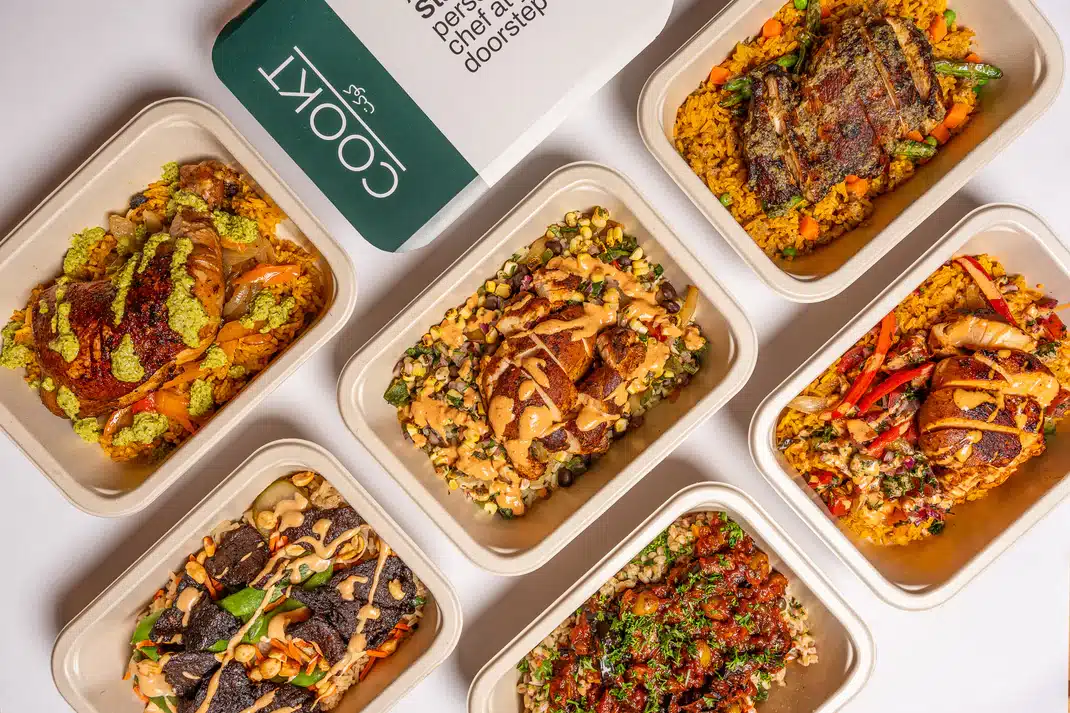Top 5 Reasons Halal Meal Kits Are Perfect for American Families
Putting dinner on the table after a long day can feel like an Olympic sport, a sentiment shared by every American family. We’re all searching for shortcuts that don’t sacrifice taste or morals in the midst of work, school pickups, and endless “what’s for dinner?” arguments. That search can be even more difficult for Muslim families or anyone who prefers ingredients that are cleaner and more ethical.
That’s where Halal meal kits come to the rescue. They have subtly transitioned from niche to mainstream, assisting families nationwide in preparing healthy, tasty meals without having to search for a specialty butcher or double-check every label. You get carefully chosen ingredients, certified halal meats, and recipes that go far beyond the typical “chicken and rice” rotation.
Halal meal kits are revolutionizing convenient cooking, whether you’re looking to satisfy a weeknight craving or want to introduce your children to the robust spices of international cuisines. To be honest, they make dinner feel much less like a chore.
Let’s dig the top five factors that are making these kits indispensable in American kitchens.
1. Religious Confidence, Without Compromise
The peace of mind that halal meal kits provide is among the strongest arguments in favor of them. When ingredients are sourced from around the world or processed in facilities that also handle non-halal meats, many Muslims in the United States question whether prepared or packaged foods actually meet halal standards. Halal meal kits reduce this uncertainty.
The ingredients used in these kits are halal-certified (meats that have been slaughtered in compliance with Islamic law, free of prohibited additives, etc.), and many suppliers openly display their certification. Certified halal food is becoming more widely available as the U.S. halal food market grows quickly due to the expansion of Muslim communities and the growing desire for clean-label, ethical food options.
Families can enjoy fully compliant, high-quality meals without having to question cross-contamination or double-check labels by selecting halal meal kits.
2. Time Savings with Culinary Variety
The most scarce resource for the majority of American families is time. Halal or non-halal meal kits aid in recovering that time. Home-delivered meal boxes have been shown in numerous studies and user reports to lessen the hassle of weekly cooking. Parents frequently list “saving time and mental energy” and learning new recipes as the main justifications for adopting them.
Traditional meal kit services are commended for providing precisely what you require, eliminating guesswork and wasted ingredients. The value compounds when you combine that with halal certification: you get effective cooking without compromising the integrity of your diet.
Instead of searching the grocery aisle for “halal beef” or deciphering unclear ingredient labels, the halal meal kit comes prepared. The outcome? Spend more time at the table rather than in the shop.
3. Reduce Food Waste and Save Costs Indirectly
One of the lesser-known benefits of meal kits is that they can help cut down on food waste. Measuring precisely ensures that fewer ingredients spoil or remain in the refrigerator. The U.S. Department of Agriculture (USDA) has found that meal kits can help reduce food waste overall, even though they create a lot of packaging waste.
Some people say that meal kits cost more per serving than buying in bulk, but when you think about waste, impulse buys, and extra trips to the store, the price difference can get smaller.
For a family that follows halal rules, that means they won’t have to throw away meat that has gone bad or spices that they forgot about. This is especially true for items that are more expensive or harder to locate in halal versions.
4. Encourages Culinary Exploration within Cultural Boundaries
When looking for halal food, many American families still prefer variety—tastes that go beyond what the neighborhood halal butcher offers. Recipes from South Asian, Middle Eastern, North African, or Southeast Asian diets that have been modified for American palates can be included in halal meal kits. This adds comfort and exploration to your kitchen.
Meal kits promote variety in contrast to takeout, which may stick to a limited menu (think halal chicken and rice, kebabs). You could try Moroccan-style vegetable tagine, lamb kofta with herb rice, or a halal feta and spinach stuffed chicken. Your family gradually develops a broader palate while adhering to halal regulations.
(Also, when you want a break from cooking your own halal fare, don’t forget to check out some of the street-food inspired recipes over on NewYorkStreetFood.com—we often showcase fusion ideas and global flavor combinations.)
5. Health, Nutrition & Ingredient Transparency
Additionally, halal meal kits typically encourage healthier options. They deter overconsumption because they come with portion control and a well-balanced assortment of grains, vegetables, and protein. Many halal kit providers emphasize a special focus on “clean” ingredients, meaning they don’t contain any artificial preservatives, too much sodium, or dubious additives.
Another advantage is transparency. Traceability is something that many certified halal brands trust you will want: “Where did this ingredient come from? What was done about it? To enable clients to confirm the integrity of halal from farm to plate, some suppliers even incorporate supply chain traceability or blockchain.
This dual assurance is powerful for families that are concerned about both health and faith.
Putting It All Together
Imagine this typical evening in an American household:
- It’s 5:45 PM. You’re juggling emails, a toddler who needs help with homework, and a teenager asking what’s for dinner.
- You open the fridge: half a pack of halal chicken, some vegetables, but nothing inspiring.
- Instead, suppose your halal meal kit arrives that same day. You peel open a box, see step-by-step instructions, pre-measured spices, and fully halal-certified meat or plant proteins.
- In 25 minutes, you plate a vibrant, home-cooked halal dinner—no stress, no label-scanning, no leftovers languishing in the back of the fridge.
That situation isn’t made up; it’s already happening to many Muslim and Muslim-adjacent families. As the U.S. market for halal food grows (and experts say it will continue to grow), we can expect halal meal kits to become easier to find, cheaper, and have more options.
If you want to try halal meal kits for yourself, check out GetCookT. They have halal options that are both convenient and high-quality. (Yes, that’s one I endorse.)
Tips for American Families Considering Halal Meal Kits
- Check for certification: Always look for reliable halal certification symbols or third-party audits.
- Start small: Try one kit a week to see how your family likes the recipes.
- Customize: Some services allow substitutions (e.g., vegetarian, gluten-free) while maintaining halal compliance.
- Pair with staples: Use the kit as a foundation and add basics like rice, salad, and flatbread from your pantry.
- Compare cost vs. waste: Track how much you save on groceries and how much you waste to see the true savings.
In conclusion, halal meal kits are more than just food delivery; they are a perfect blend of convenience, culture, and culinary creativity. They provide a sophisticated, useful, and joyfully contemporary approach to mealtime for American families who appreciate halal living.

Maria is a food lover and Sonic Drive-In enthusiast who writes about menus, new items, and easy-to-make recipes. She brings flavor and fun to every post on Sonic Menu Spot.

